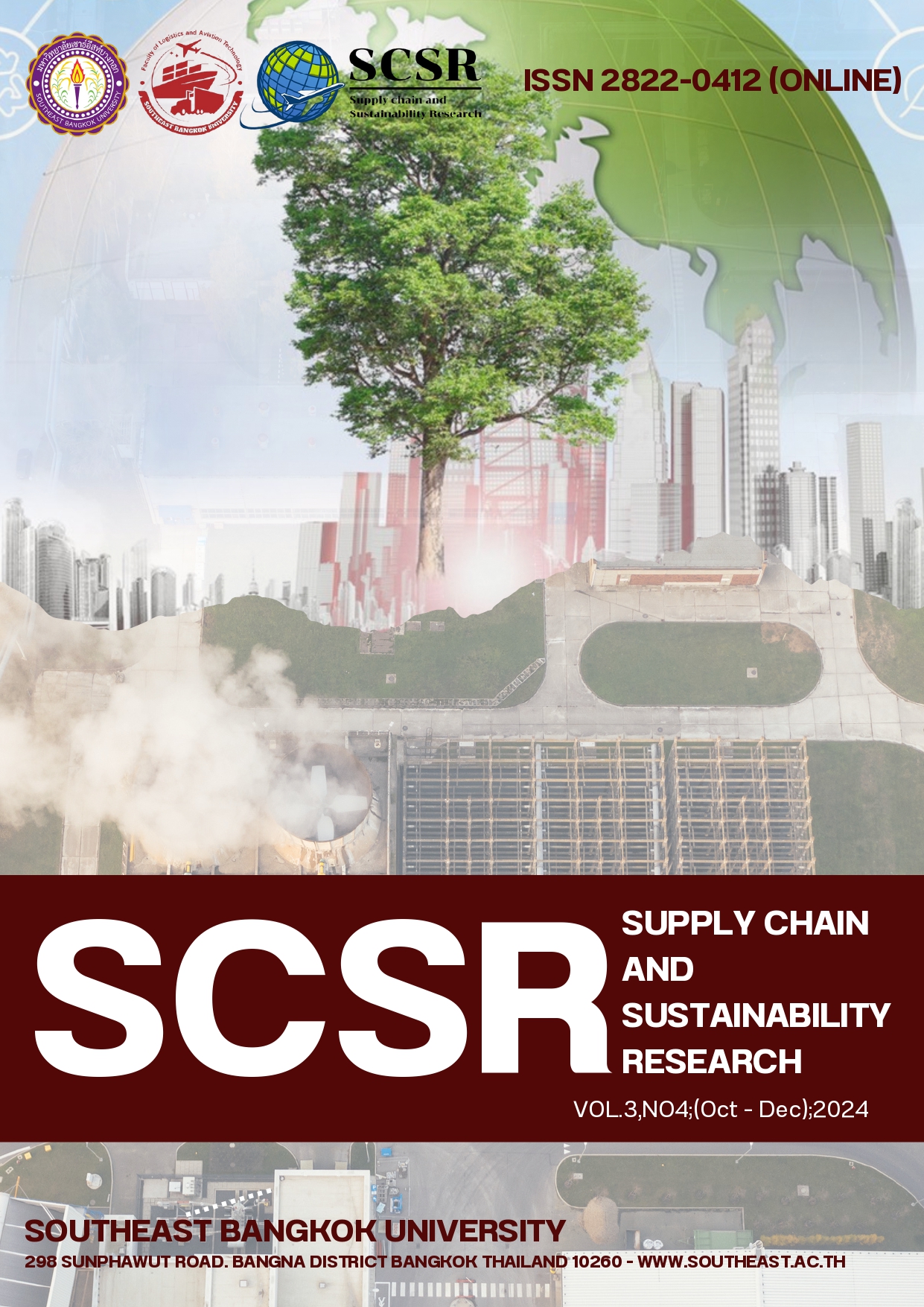An Examination of Taiwan's Policies in Responding to Climate Change
Main Article Content
บทคัดย่อ
This study explores Taiwan's climate strategies, highlighting both their strengths and areas for improvement. Initially, the paper provides an overview of Taiwan's current climate situation, establishing a baseline for understanding the existing policy landscape. It then critically evaluates the country's efforts concerning carbon emissions reduction, energy efficiency, and broader carbon-reduction initiatives implemented in recent years. The challenges encountered during the implementation of these strategies are thoroughly examined, leading to practical recommendations aimed at enhancing Taiwan's resilience to climate-related challenges. Key recommendations include improving policy coherence, enhancing risk mitigation strategies, increasing community involvement, refining oversight mechanisms, and supporting industrial evolution. This research seeks to guide future climate-focused policymaking in Taiwan by offering a comprehensive analysis and proposing innovative policy directions
Article Details

อนุญาตภายใต้เงื่อนไข Creative Commons Attribution-NonCommercial-NoDerivatives 4.0 International License.
บทความนี้ได้รับการเผยแพร่ภายใต้สัญญาอนุญาต Creative Commons Attribution-NonCommercial-NoDerivatives 4.0 International (CC BY-NC-ND 4.0) ซึ่งอนุญาตให้ผู้อื่นสามารถแชร์บทความได้โดยให้เครดิตผู้เขียนและห้ามนำไปใช้เพื่อการค้าหรือดัดแปลง หากต้องการใช้งานซ้ำในลักษณะอื่น ๆ หรือการเผยแพร่ซ้ำ จำเป็นต้องได้รับอนุญาตจากวารสารเอกสารอ้างอิง
Berkes, F.,Tsai, H-M.,Bayrak, M. M.,& Lin, Y-R. (2021). Indigenous resilience to disasters in Taiwan and beyond Sustainability 13 2435. https://doi.org/10.3390/su13052435
Chang, Y.,Lee, M-A.,Lee, K-T.,& Shao, K-T. (2013). Adaptation of fisheries and mariculture management to extreme oceanic environmental changes and climate variability in Taiwan Marine Policy 38 476–82. https://doi.org/10.1016/j.marpol.2012.08.002
Chen, H-Y.,Huang, C-C.,& Yeh, H-F. (2021). Quantifying the relative contribution of climate change and human activity on runoff in the Choshui River alluvial fan, Taiwan Land 10 825 https://doi.org/10.3390/land10080825
Dupuis, J., & Biesbroek, R. (2013). Comparing apples and oranges: the dependent variable problem in comparing and evaluating climate change adaptation policies Global Environ. Change 23 1476–87. https://doi.org/10.1016/j.gloenvcha.2013.07.022
Hansen, J.,Sato, M., Ruedy, R.,Lacis, A.,& Medina-Elizade, M. (2006). Global temperature change Proc. Natl Acad. Sci. 103 14288–93 https://doi.org/10.1073/pnas.0606291103
Hsiang, S.,Meng, K.,& Cane, M. (2011). Civil conflicts are associated with the global climate Nature 476 438–41 https://doi.org/10.1038/nature10311
Hsu, H-H.& Chen, C-T. (2002). Observed and projected climate change in Taiwan Meteorol. Atmos. Phys. 79 87–104 https://doi.org/10.1007/s703-002-8230-x
Hsu, C-H., & Lin, J-C. (2013). Benefits beyond boundaries: a slogan or reality? a case study of Taijiang National Park in Taiwan Tourism Manage. Perspect. 6 41–52 https://doi.org/10.1016/j.tmp.2012.12.001
Hung, H-C.,& Chen, L-Y. (2013). Incorporating stakeholders’ knowledge into assessing vulnerability to climatic hazards: application to the river basin management in Taiwan Climatic Change 120 491–507 https://doi.org/10.1007/s10584-013-0819-z
Lai, C-H.,Liao, P-C.,Chen, S-H,,Wang, Y-C.,Cheng, C.,& Wu, C-F. (2021). Risk perception and adaptation of climate change: an assessment of community resilience in rural Taiwan Sustainability 13 3651 https://doi.org/10.3390/su13073651
Lee, C-C., Huang, K-C.,Kuo, S-Y.,Cheng, C-K.,Tung, C-P.,& Liu, T-M. (2022). Climate change research in .Taiwan: beyond following the mainstream Environ. Hazards 22 79–97 https://doi.org/10.1080/17477891.2022.2074954
Lin, L-Y., Lin, C-T.,Chen, Y-M.,Cheng, C-T.,Li, H-C.,& Chen, W-B. (2022). The Taiwan Climate Change Projection Information and Adaptation Knowledge Platform: a decade of climate research Water 14 358 https://doi.org/10.3390/w14030358
Schleussner, C-F.,Rogelj, J.,Schaeffer M. (2016). Science and policy characteristics of the Paris Agreement temperature goal Nature Clim. Change 6 827–35 https://doi.org/10.1038/nclimate3096
Shih, W. (2016). Taiwan's climate change mitigation policies and their potential interaction with the WTO rules: focusing on economic incentive measures in Legal Issues on Climate Change and International Trade Law (Switzerland: Springer) pp 109–29 https://doi.org/10.1007/978-3-319- 29606-1_6
Shih, Y-H., & Tseng, C-H. (2014). Cost-benefit analysis of sustainable energy development using life-cycle co-benefits assessment and the system dynamics approach Appl. Energy 119 57–66 https://doi.org/10.1016/j.apenergy.2013.12.031
Su, Y-P. Hall, C. M., & Ozanne, L., (2013). Hospitality industry responses to climate change: a benchmark study of Taiwanese tourist hotels Asia Pac. J. Tourism Res. 18 92–107 https://doi.org/10.1080/10941665.2012.688513
Tu, S, & Yu, S. (2023). Urban planning for climate change: comparing climate adaptation plans between Taipei and Boston Sustainability 15 934 https://doi.org/10.3390/su15020934
Yang, Y-C., & Ge, Y-E. (2020). Adaptation strategies for port infrastructure and facilities under climate change at the Kaohsiung port Transport Policy 97 232–44 https://doi.org/10.1016/j.tranpol.2020.06.019


